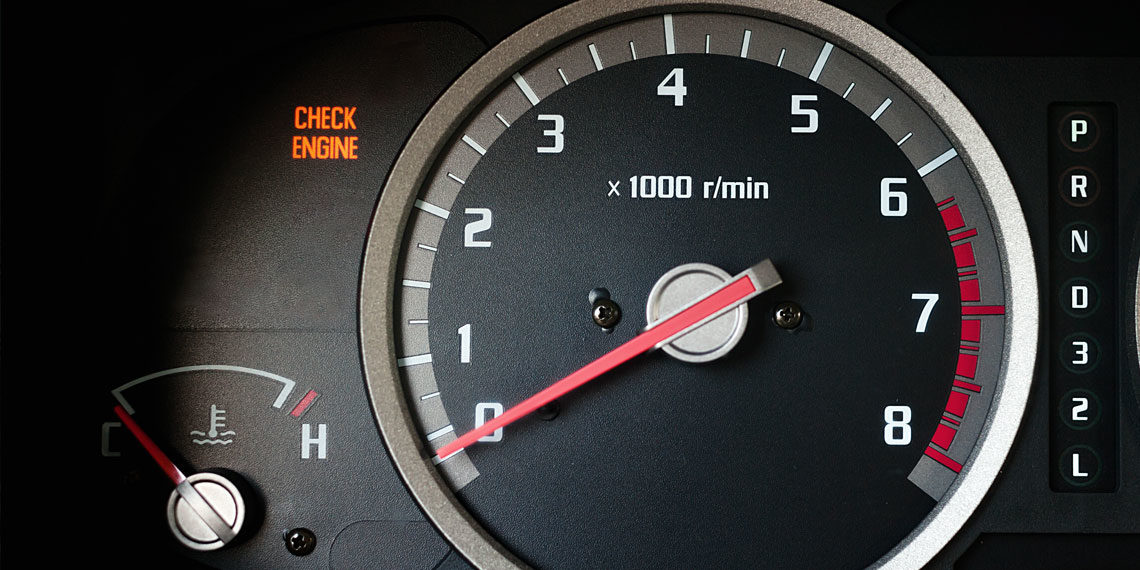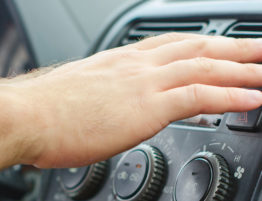
Do you know what to do when you’re car’s check engine light flashes on? Your first thought is probably to stop the vehicle immediately because something could be wrong with the engine! And it’s not a bad idea, but it’s not always necessary.
That’s the reason most people hate the check engine light. Our car dashboards are filled with little lights and gauges ready to warn us if our car overheats or our oil is low, so why do we have this one light which is a mystery?
While you should take your vehicle to a mechanic as soon as possible when the light comes on, because it never comes on for no reason at all, there are a few situations in which you may not have an immediate problem.
There’s no immediate problem with your vehicle if…
- Your car is behaving normally and you don’t notice any differences in driveability.
- You don’t hear any strange noises coming from the vehicle.
- You don’t see any smoke coming from the vehicle.
- You’re getting the same gas mileage you normally do as you drive.
- You don’t notice any strange smells emitting from your vehicle.
So you can also assume if you see smoke, hear any noises like rattling or knocking, notice an extreme loss in power or control, have a decline in your gas mileage, or your car won’t start after the light has come on, then you have an immediate concern and should call a mechanic immediately.
When your vehicle throws a check engine light, it also stores a specific trouble code in the car’s computer. A mechanic will have the electronic scan tool or diagnostic computer which can read the code and determine the source of the problem. It can be anything from a sensor malfunction to a misfiring engine, but you need the code to know where to start.
If you prefer to do your own car work when it’s possible, you can also go to a local Advance Auto Parts or other auto parts store and they often are available to read for trouble codes. We suggest calling ahead because not every location will offer this service. And we only suggest this when your vehicle is not showing any signs of an immediate problem.
There are four common problems which cause your vehicle’s check engine light to come on. And while we can’t tell you exactly what your engine light is trying to tell you, we can tell you what may be wrong with your vehicle. But your best bet is always to take it to a mechanic as soon as possible. You may not need it towed in every case, but it should always go to a professional or at least an auto parts store to determine if the problem is something you can fix yourself.
Your gas cap is loose, damaged, or M.I.A.
When something is off with your gas cap, it can throw off the entire fuel system. Even if it is just a little loose or cracked. When the gas cap is functioning properly, it maintains the pressure in the fuel tank, preventing the release of hydrocarbons when you’re not driving. The longer you go without fixing this problem, the more likely it is that you will lose fuel in your vehicle through evaporation and will be shelling out more money for gas than ever.
Your oxygen sensor has gone bad
Typically your car will have one or two oxygen sensors which monitor the unburned oxygen from your car’s exhaust, keeping track of how much fuel your car is burning. As time goes on, the sensor can become coated in oil ash, making it impossible for the oxygen sensor to function properly. It will reduce your gas mileage and increase your vehicle’s emissions. If it’s not replaced soon, it can break your catalytic convertor. Which is a much more costly repair. It’s best to have the oxygen sensor changed immediately upon finding a problem as opposed to putting it off.
Your spark plugs and wires need to be replaced
Your spark plugs should typically be replaced between every 25,000 – 30,000 miles. Your spark plug allows for a spark to jump across and initiate the combustion of your vehicle’s engine. So when they’re failing, which you can tell when you feel a jolt of acceleration while driving, you’ll notice an increase in emissions, reduced gas mileage, and less engine power. If you don’t replace them immediately, which is simple to do if you find a video on YouTube, this can also lead to a broken catalytic convertor.
Your mass airflow sensor has failed
Your mass airflow sensor keeps your car’s computer up to date on the proper amount of fuel needed based on the air going through the engine. If your air filter was improperly installed, this can eventually cause your mass airflow sensor to fail. Replacing this filter once a year will prevent this sensor from failing. If you wait to repair it, a broken mass airflow sensor can cause your vehicle’s emissions to increase, the gas mileage to decrease, and the car could stall.
While there are some repairs you can make yourself, when you have a check engine light on in your vehicle, you should take it to a mechanic as soon as possible to resolve the problem.
- Driving with a Cracked Windshield is Dangerous! - November 28, 2019
- Common Causes of Windshield Cracks: What You Need to Know - November 20, 2019
- The Best Road Trip Snacks for Kids - November 20, 2019








